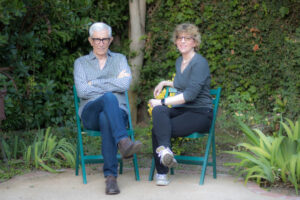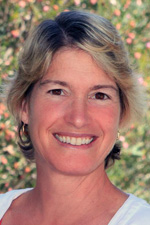By Eva Trieger
SANTA BARBARA, California — As we celebrate Passover, the Festival of Freedom, it feels appropriate to write about a Holocaust documentary to which I was recently introduced. In 2008 filmmaker, podcast host and comedian, Louise Palanker teamed up with Jennie Reinish to bring us “We Played Marbles: Remembering a Stolen Childhood.”
The one-hour and 15-minute documentary explores the experiences of a number of European Holocaust survivors who eventually found their way to Santa Barbara. Though they were very young during these traumatic years, each of them shared his/her unique and compelling story of not only survival but eventual “thrival.” Each of these men and women witnessed atrocities and inhumanity beyond my comprehension, yet, they seemed to understand that their stories must be shared to prevent a repeat performance. Many of the subjects had previously been recorded by the Shoah Foundation and told of their personal trauma with eloquence and clarity. I was impressed to learn that Louise Palanker continued her friendship with these individuals after the film was produced.
Palanker shared that this film was in a number of Jewish Film Festivals and led to another film with painter and survivor, Margaret Singer.
A shorter documentary showcases Singer’s life, inspiring attitude, and talent, as she used color and light to translate her thoughts and emotions onto canvas. On a poignant note, the film was completed and aired just months before Singer’s death, and she was able to share it with her community.
On the very theme of liberation, Palanker’s father played an integral part as a liberator of a concentration camp at the age of 19. As a young private in the U.S. Army, Marvin Palanker, an anti-aircraft gunner, had come upon a camp on the outskirts of Nordhausen Germany. The Nazis had fled the camp after brutally killing 2,500 men, shot in the head less than an hour before the Americans arrived. They’d left no survivors. This sight left an indelible mark on Palanker’s soul. When his platoon located female survivors of Auschwitz who’d made it through a death march, the Yiddish-speaking soldier memorized names and addresses and sent letters all over the world to the families of these poor young women. Many letters were received by relations and answered, giving hope and support to the disenfranchised women.
Louise Palanker’s father told his children this story from the time they were quite young, however, he and her mom, opted not to share the photographs. He conveyed his pride that he had conducted himself humanely while experiencing such a shattering event of human evil. He was a voracious reader and consumed information about the war. He maintained an air of optimism, and any time his children asked a question with fear, he countered it with a hopeful answer to model this for his children. Palanker recorded some of her ‘tween thoughts and angst in a book, co-written by her father, called, Journal: Middle School Love and War. in which she incorporates her age-appropriate questions with her dad’s stories and messages. The Kindle version is available on Amazon.
Santa Barbara is home to Louise Palanker and her husband, Ron Zonen. Both are active in the Jewish Federation of Santa Barbara, and Zonen puts on the Santa Barbara Jewish Film Festival, annually. Of this close-knit community, Palanker says that there is a sense of connection, one to another. There is weekly challah delivery, and checking in on each other with phone calls. Zoom meetings kept the Jewish community linked during COVID and a recent building renovation. Lunch and lecture series and a weekly “schmooze room” keep the friendly Santa Barbara Jewish community intertwined.
Palanker’s talents are many and our conversation covered several of her life experiences from discovering that “we Palankers present as funny,” which fueled a stint in teaching comedy classes. While visualizing herself as a writer, this Jacqueline-of-all-trades, stumbled upon the fact that she was a successful comedy writer. She was asked by Neil Simon’s brother, Danny Simon, to write for television sitcoms, Different Strokes and One Day at a Time, and discovered this hidden talent!

Palanker’s curiosity and appetite for topical events led to the creation of a podcast with former Los Angeles weather reporter, Fritz Coleman. A comedian himself, the two had some common ground and an easy rapport. “Media Path” began as “Things I Found Online” during the pandemic, but morphed into a program that invites viewers to explore ideas about our world. The topics range from political, social, and Boomer comfort food, to nearly anything that grabs the attention of the co-hosts. The show allows for deeper dives into topics that will expand one’s worldview. The duo has surpassed their 100th episode and is still going strong, with inquisitive energy and a vast array of guests.
Talking with Louise Palanker was like watching a very well-orchestrated ballet. The range of emotions her stories evoked spanned the entire spectrum of funny, sad, optimistic, whimsical, and all delightful. I felt as though I could have spent several hours learning more about this pioneering woman’s life and still only have scratched the surface.

*
Eva Trieger is a freelance writer specializing in the arts. She may be contacted via eva.trieger@sdjewishworld.com